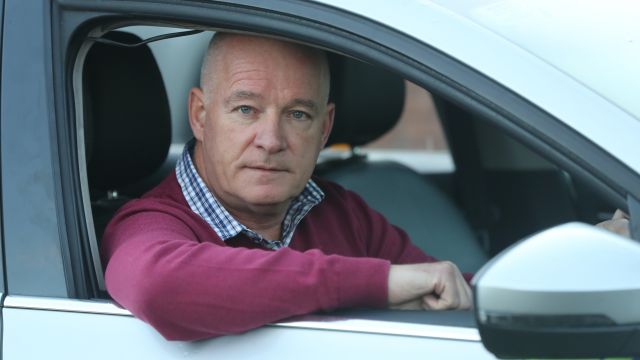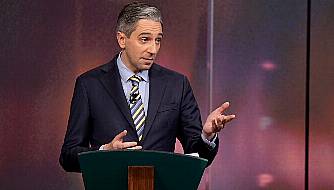The Government announced that self-employed people will be able to claim the Pandemic Unemployment Payment while continuing to take up intermittent work.
The measure, aimed at helping those who have been badly affected by Covid-19, means that self-employed workers including taxi drivers will be able to earn up to 480 euro per month, or 120 euro a week, without losing the payment.
Jim Waldron of the National Private Hire and Taxi Association said that while the new measures were welcome they were “not enough” when drivers were being “straight away hit with other costs”.
Fuel prices are due to increase as of midnight on Tuesday due to the changes announced by Finance Minister Paschal Donohoe.
Jim Waldron said he was extremely disappointed taxi drivers were not specifically mentioned in the budget (Niall Carson/PA)
Tax breaks for green vehicles and higher VRT rates for polluting cars are some of the other measures that will affect drivers across the country.
Mr Waldron said he was “extremely disappointed” that taxi drivers were not “specifically mentioned” in the budget.
“There’s a lot of people out there working in the pandemic at reduced income putting in a very vital service, bringing other people who are classed as frontline workers to their jobs and from their jobs and we’ve been completely overlooked once again,” he said.
In advance of the budget taxi drivers had sought a range of measures to support the sector as it responds to Covid-19.
These included a financial package to help them return to work, a moratorium on the issuing of taxi licences, a two-year extension on the age limit requirements for vehicles and the retention and continued access to bus lanes.
“Every day of this pandemic taxi drivers have just fallen further into poverty, further into debt because we continue to pay the payments we are obliged to pay,” Mr Waldron said.
“A lot of people are working through the pandemic at very reduced income.”
There's a lot of people out there working in the pandemic at reduced income putting in a very vital service, bringing other people who are classed as frontline workers to their jobs and from their jobs and we've been completely overlooked once again
Not only have drivers been affected “very badly financially”, Mr Waldron said it had also been difficult for drivers from a mental health perspective.
“I would say most taxi drivers like working, they like interacting with people,” he said. “Now there are people sitting at home looking at four walls and they haven’t had anyone to speak to and it’s very difficult to handle that.”
Mr Waldron, from Kildare, said some drivers had returned to work in recent months but many had been forced to re-sign onto the pandemic payment because of the introduction of Level 3 restrictions.
He said the electric car incentives outlined in the budget were not at all helpful when drivers were struggling financially.
“I don’t see how they expect any driver who is in the depths of poverty at the moment to invest 65,000 euro in a new electric vehicle,” he said.
“I would suggest there isn’t one driver in the country that could afford that after six months of not earning.”
Further coverage on Budget 2021:Full details of an 'unprecedented' €17bn budget to support business, jobs and health Key points at a glanceReaction from the Opposition, business and industryWhat this year's budget means for the average worker







